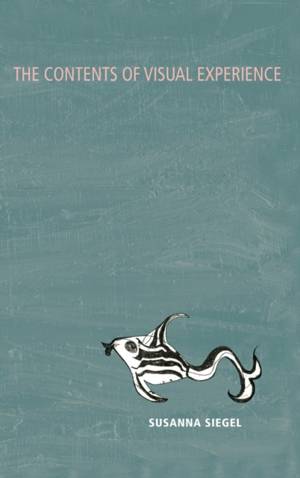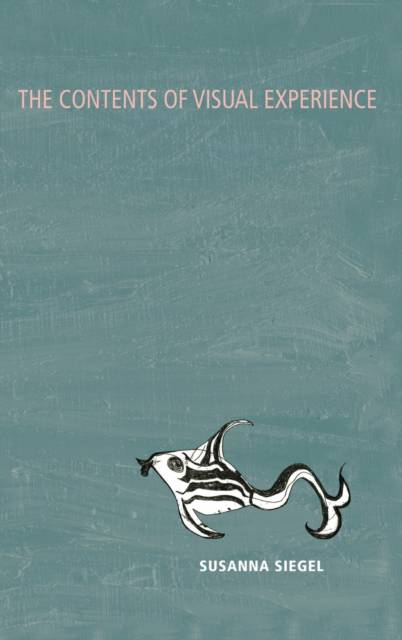
Door een staking bij bpost kan je online bestelling op dit moment iets langer onderweg zijn dan voorzien. Dringend iets nodig? Onze winkels ontvangen jou met open armen!
- Afhalen na 1 uur in een winkel met voorraad
- Gratis thuislevering in België vanaf € 30
- Ruim aanbod met 7 miljoen producten
Door een staking bij bpost kan je online bestelling op dit moment iets langer onderweg zijn dan voorzien. Dringend iets nodig? Onze winkels ontvangen jou met open armen!
- Afhalen na 1 uur in een winkel met voorraad
- Gratis thuislevering in België vanaf € 30
- Ruim aanbod met 7 miljoen producten
Zoeken
€ 113,45
+ 226 punten
Uitvoering
Omschrijving
What do we see? We are visually conscious of colors and shapes, but are we also visually conscious of complex properties such as being John Malkovich? In this book, Susanna Siegel develops a framework for understanding the contents of visual experience, and argues that these contents involve all sorts of complex properties. Siegel starts by analyzing the notion of the contents of experience, and by arguing that theorists of all stripes should accept that experiences have contents. She then introduces a method for discovering the contents of experience: the method of phenomenal contrast. This method relies only minimally on introspection, and allows rigorous support for claims about experience. She then applies the method to make the case that we are conscious of many kinds of properties, of all sorts of causal properties, and of many other complex properties. She goes on to use the method to help analyze difficult questions about our consciousness of objects and their role in the
contents of experience, and to reconceptualize the distinction between perception and sensation. Siegel's results are important for many areas of philosophy, including the philosophy of mind, epistemology, and the philosophy of science. They are also important for the psychology and cognitive neuroscience of vision.
contents of experience, and to reconceptualize the distinction between perception and sensation. Siegel's results are important for many areas of philosophy, including the philosophy of mind, epistemology, and the philosophy of science. They are also important for the psychology and cognitive neuroscience of vision.
Specificaties
Betrokkenen
- Auteur(s):
- Uitgeverij:
Inhoud
- Aantal bladzijden:
- 232
- Taal:
- Engels
- Reeks:
Eigenschappen
- Productcode (EAN):
- 9780195305296
- Verschijningsdatum:
- 4/02/2011
- Uitvoering:
- Hardcover
- Formaat:
- Genaaid
- Afmetingen:
- 213 mm x 147 mm
- Gewicht:
- 416 g

Alleen bij Standaard Boekhandel
+ 226 punten op je klantenkaart van Standaard Boekhandel
Beoordelingen
We publiceren alleen reviews die voldoen aan de voorwaarden voor reviews. Bekijk onze voorwaarden voor reviews.











